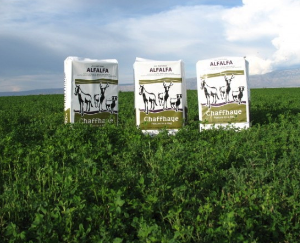Equerry’s Large Animal Probiotics
Can be fed to all species of Animals. Our Large Animal Probiotics contains the highest quality of Microencapsulated Probiotics and Digestive Enzymes available. Our Large Animal Probiotics contain no additional Vitamins and Minerals; therefore they can be added to any feeding program without the fear of over supplementation
By feeding Large Animal Probiotics on a regular basis, you are providing a constant supply of beneficial bacteria and enzymes. This effectively aids in the creation of a more consistently balanced digestive environment.
6 Species of Microencapsulated Probiotics – Our probiotics stimulate a steady appetite, promoting energy and stamina. Encapsulation protects the beneficial probiotics by creating a physical barrier which dissolves at its target point, the gut. Our probiotics are proven to survive the acid in the stomach and flourish in the hind gut. This creation of a positively flourishing gut will suppress multiple harmful pathogens (E. Coli, Salmonella).
6 Digestive Enzymes – Our custom blend of enzymes assist in breaking down fats, proteins, etc. so that they are easier for the body to utilize. This allows for your animal to better utilize his current diet. Through the creation of a healthy gut environment your animal will benefit from an improved absorption of essential nutrients, a boost in their digestive activity and gain a refined sense of wellness which leads to an improved level of performance and vigor.
Active Live Yeast – This will aid in the balance of pH and keeps appetites strong. Yeast provides digestive stability so that the animal can absorb nutrients in their diet more efficiently.
The Fast and Dependable activity makes it paramount as an addition to your animal’s daily feed. It is most effective during periods of stress that may be caused by heavy exertion, foaling, travel or feed changes.
After antibiotic treatment, deworming, or psylium treatment, the balance of the gut can be changed dramatically, and feeding Large Animal Probiotics with our microencapsulated beneficial bacteria would be strongly recommended. Our exclusive microencapsulated microbes are the perfect addition to your animal’s diet. Very palatable, higher levels can be fed safely in times of greater need.






















